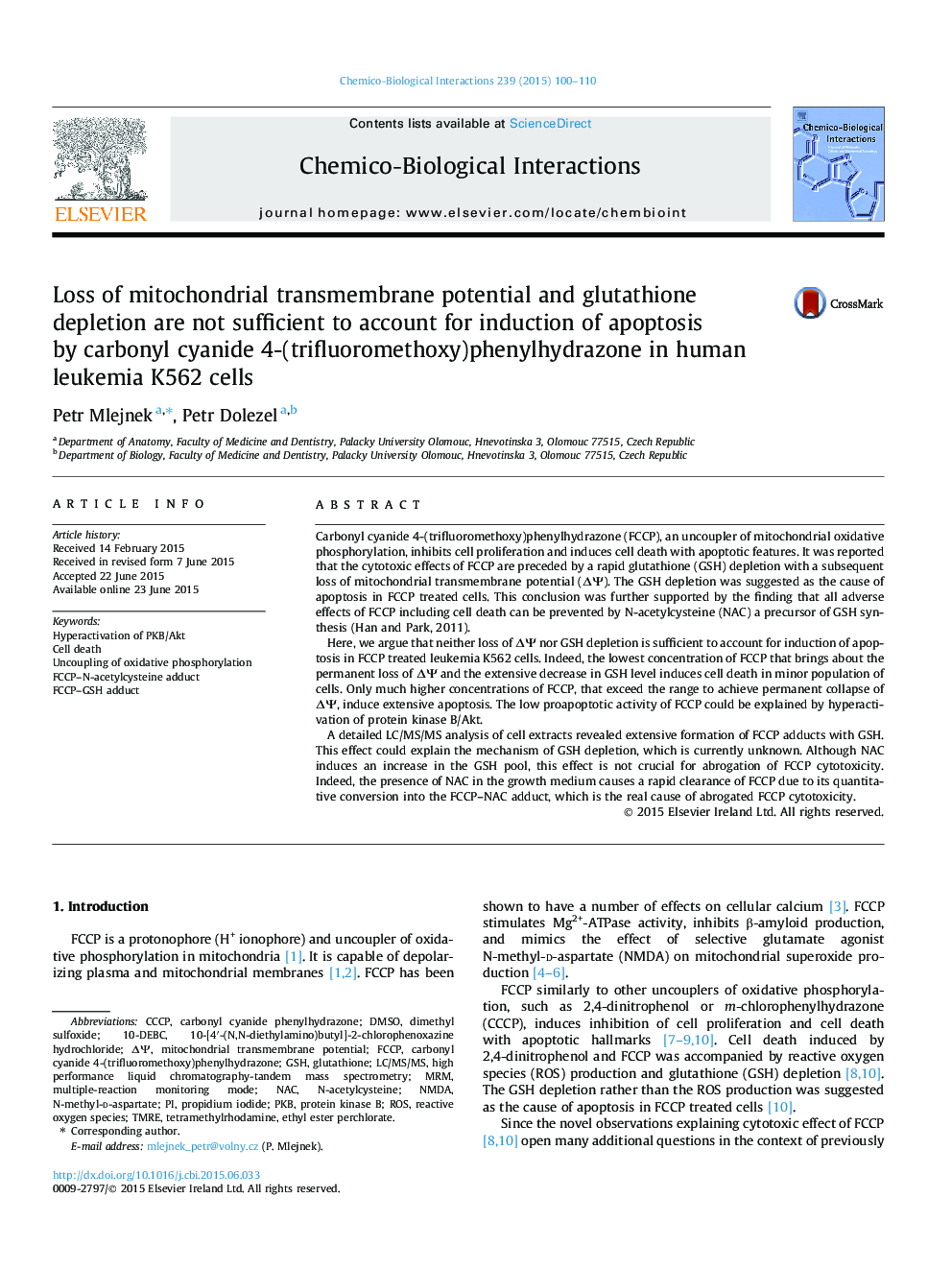| کد مقاله | کد نشریه | سال انتشار | مقاله انگلیسی | نسخه تمام متن |
|---|---|---|---|---|
| 5847847 | 1561602 | 2015 | 11 صفحه PDF | دانلود رایگان |

- FCCP induces glutathione (GSH) depletion.
- FCCP decreases the GSH level by forming FCCP-GSH adduct.
- FCCP induces hyperactivation of protein kinase B/Akt.
- Hyperactivation of protein kinase B/Akt reduces FCCP induced apoptosis.
- N-acetylcysteine (NAC) prevents FCCP cytotoxicity by forming FCCP-NAC adduct.
Carbonyl cyanide 4-(trifluoromethoxy)phenylhydrazone (FCCP), an uncoupler of mitochondrial oxidative phosphorylation, inhibits cell proliferation and induces cell death with apoptotic features. It was reported that the cytotoxic effects of FCCP are preceded by a rapid glutathione (GSH) depletion with a subsequent loss of mitochondrial transmembrane potential (ÎΨ). The GSH depletion was suggested as the cause of apoptosis in FCCP treated cells. This conclusion was further supported by the finding that all adverse effects of FCCP including cell death can be prevented by N-acetylcysteine (NAC) a precursor of GSH synthesis (Han and Park, 2011).Here, we argue that neither loss of ÎΨ nor GSH depletion is sufficient to account for induction of apoptosis in FCCP treated leukemia K562 cells. Indeed, the lowest concentration of FCCP that brings about the permanent loss of ÎΨ and the extensive decrease in GSH level induces cell death in minor population of cells. Only much higher concentrations of FCCP, that exceed the range to achieve permanent collapse of ÎΨ, induce extensive apoptosis. The low proapoptotic activity of FCCP could be explained by hyperactivation of protein kinase B/Akt.A detailed LC/MS/MS analysis of cell extracts revealed extensive formation of FCCP adducts with GSH. This effect could explain the mechanism of GSH depletion, which is currently unknown. Although NAC induces an increase in the GSH pool, this effect is not crucial for abrogation of FCCP cytotoxicity. Indeed, the presence of NAC in the growth medium causes a rapid clearance of FCCP due to its quantitative conversion into the FCCP-NAC adduct, which is the real cause of abrogated FCCP cytotoxicity.
Journal: Chemico-Biological Interactions - Volume 239, 5 September 2015, Pages 100-110